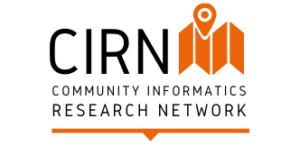Registration is open for the 19th Annual Community Informatics Research Network Conference, “Communities, Technology and This Moment“: 8-12 November 2021 co-sponsored by Monash University and Simmons University.
REGISTRATION
Please see the registration information: https://sites.google.com/view/cirn2021/programs-and-registration?authuser=0
PROGRAM
Browse the virtual conference program at https://www.conftool.net/prato2021/sessions.php. Note that all times are in UTC/GMT.
The theme of the 2021 conference, “Communities, Technology and this moment” aims to bring together the rich knowledge, experience, and practice of Community Informatics, Community Archives, and Development Informatics with a focus on data justice, digital equity, and community informatics response to this moment in history. The 2021 CIRN conference will provide a virtual space to explore how researchers and practitioners ethically collect information, including what happens when community information is intentionally left uncollected, and how information systems can be designed in harmony with communities.
CIRN is an annual conference that normally takes place in the wonderful atmosphere at Monash University’s campus in Prato, Italy. This year it is online because of pandemic restrictions. It is focused on sharing lessons, learning together, and developing strategies to build more inclusive, just, and equitable communities. CIRN welcomes researchers and practitioners working towards human and civil rights, self-determination, sustainable development, and social justice to submit a proposal to this year’s CIRN conference.The conference call is now closed Follow the links above on submitting a paper or proposal, costs, and other matters.


